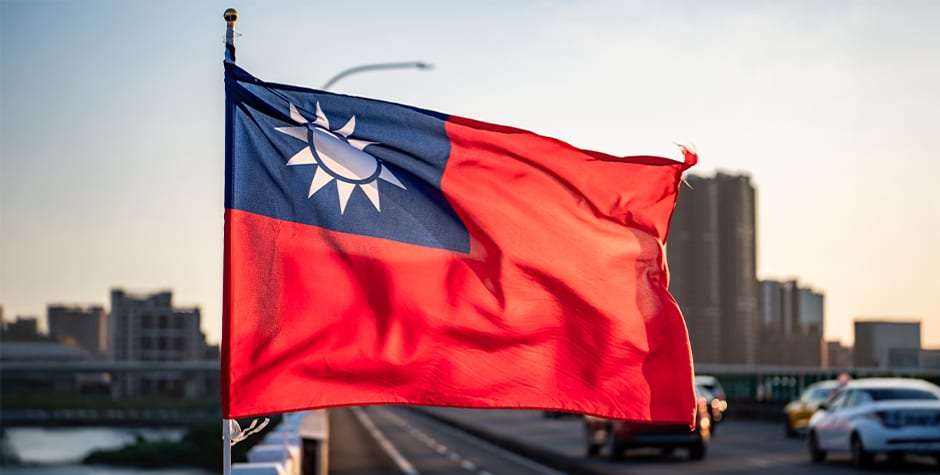Taiwan’s Sovereignty Is Non-Negotiable: Why the U.S. Must Stand Firm Against Chinese Aggression
Listen tothis article
The United States is a champion of democracy, liberty, and the rule of law — principles that we share with Taiwan. Those principles are not just vague generalities but are the bedrock of America’s approach to foreign policy. No place is this more relevant than the U.S.-Taiwan relationship and the entire Indo-Pacific region. The Chinese Communist Party’s (CCP) aggression toward Taiwan is not a theoretical problem; it is an immediate and growing threat to peace and stability around the world. One important and powerful step the United States must take to counter this aggression is to formally recognize a simple truth: Taiwan is an independent and sovereign nation – something I have repeatedly called for the United States to do.
During my tenure as Secretary of State, the Trump Administration strengthened its relationship with Taiwan, recognizing it as a key partner in the global struggle against the CCP’s malign influence. The CCP continues to intimidate, threaten, and coerce Taiwan’s existence — a country whose principles of democracy, free markets, and human rights stand as the antithesis to the Chinese communist regime. Xi Jinping’s ambitions are clear: to force Taiwan under Beijing’s rule by any means necessary.
Since leaving the State Department, I’ve had the opportunity to go to Taiwan on multiple occasions, something no current or former Secretary of State has ever done. While there I have seen a people yearning for freedom and prosperity. The CCP only sees Taiwan as property and a people to be taken, which is why the United States should recognize its sovereignty as a deterrent to Chinese aggression.
A resolution was recently introduced in the United States Senate rejecting Beijing’s “One China Policy” principle. In the House of Representatives, a resolution was introduced to recognize Taiwan as an independent country, not governed by or included within the territory of the People’s Republic of China. Both of these resolutions should become the stated policy of the United States.
Taiwan’s security is not just important to the 24 million people who call it home—it is crucial for the stability in the Indo-Pacific region, where Taiwan remains a key strategic partner with the U.S. As a shining example of the success of freedom and democracy of the Taiwanese people, Taiwan stands as a beacon of freedom in a region where the CCP’s treacherous dominance threatens to spread. U.S. support for Taiwan goes hand –in hand with countering the CCP’s cancerous expansionism and stands at the forefront of the ideological war between democracy and authoritarianism.
Russia’s invasion of Ukraine serves as a prime example that aggression and expansionism are not an antiquity in today’s world. Russia’s adventurism should serve as a warning to the world as much as it has served as an invitation to the CCP to attempt to take Taiwan. The CCP’s territorial intimidations on the island of Taiwan and its propagandistic assertions of Taiwan being a lost piece of territory are a tall tale made in delusion.
The U.S. must stand resolutely with Taiwan. We must make clear that any attempt by the CCP to undermine Taiwan’s independence and sovereignty will be met with fierce opposition from the United States and our allies. This is more than just geopolitics; it is also defending democracy itself. Our commitment to Taiwan is a commitment to democracy around the world and to every nation that values its liberty. Any failure to defend Taiwan by deterring the CCP’s aggression will send a signal to the rest of the world that the United States’ dedication to deterring authoritarian regimes has waned.
Ensuring that Taiwan remains free from Beijing’s control is also critical to the strategic and economic interests of the United States. Taiwan is a vital economic partner and market for American industries, playing a critical role in global supply chains. Just this past week, the world’s largest chipmaker announced a 100-billion-dollar investment in the United States. If Taiwan were to fall, the basic electronics we use daily (one which you are likely to be using now) would stop being produced. Additionally, American farmers and manufacturers would face severe economic consequences due to the loss of key export markets. U.S. security in the Indo-Pacific region relies on strong, independent allies, and any shift in Taiwan’s status would undermine regional stability. If Taiwan were to fall to the CCP, the rest of the Indo-Pacific region would be under real threat from CCP hegemony.
The U.S. has always been at its best when it stands with those who share our values, and we should continue to lead the charge for freedom around the world. Fifty years of ambiguity must shift to offering Taiwan diplomatic recognition as a free and sovereign nation to make clear to the CCP that no invasion of its island neighbor will be tolerated. The CCP flourishes when weakness and indecision take precedence. In this defining moment, the United States must stand firm with Taiwan, not just as a partner, but as a symbol of the fight for freedom against an ever-more authoritarian regime in Beijing.
Support the work of the ACLJ as we continue to bring you expert analysis and legal action on the issues that matter most.

